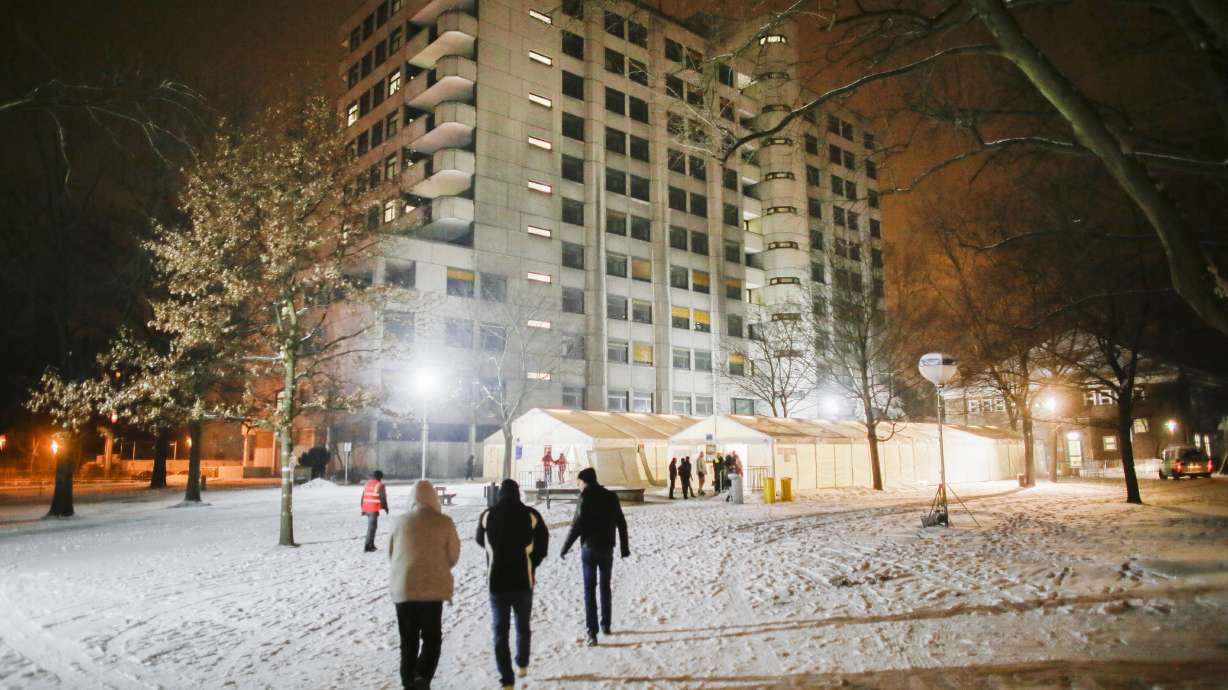Estimated read time: 2-3 minutes
This archived news story is available only for your personal, non-commercial use. Information in the story may be outdated or superseded by additional information. Reading or replaying the story in its archived form does not constitute a republication of the story.
BERLIN (AP) — Nearly 1.1 million people were registered as asylum-seekers in Germany last year, more than 400,000 of them from Syria, the government said Wednesday.
The Interior Ministry said that 1,091,894 people in total were registered between January and December. Syrians were by far the biggest single group, accounting for 428,468 people.
They were followed by Afghans, 154,046 of whom were registered, and 121,662 Iraqis.
Germany has seen more refugees and other migrants arrive than any other European country. In the early part of 2015, that included large numbers of people from Balkan countries who have very little chance of winning asylum. The fourth- and fifth-biggest groups of asylum-seekers last year came from Albania and Kosovo.
The influx was slower in December than in previous months, with 127,320 people arriving — down from 206,101 in November. Interior Minister Thomas de Maiziere said that was largely because of stormy weather in the Mediterranean Sea.
The total tally of registered asylum-seekers includes an as-yet undetermined number of people who were registered twice at different locations or continued to Scandinavia or elsewhere, de Maiziere said. He added that the number of people who actually sought asylum will only become clear as applications come in — "it is under 1 million, but how far under 1 million can only be said in the course of 2016."
Actual asylum applications have lagged behind arrivals. The government said that 476,649 people formally applied last year — the highest number on record and more than double the previous year's figure of 202,834.
"We think the level of refugees and asylum-seekers who have come to Germany is too high, and are working so that it isn't repeated on this scale in 2016," de Maiziere said.
There's widespread agreement on that in Germany, but disagreement on how to go about it.
Chancellor Angela Merkel has emphasized the importance of diplomacy and getting other European countries to share the burden, but her conservative allies in Bavaria advocate setting a cap on the number of refugees Germany can take. Bavarian governor Horst Seehofer has suggested a figure of 200,000.
"International efforts haven't yet won through," Seehofer said Wednesday. "We must wait and see what happens in this field in January and February ... and then evaluate what we need in addition."
Seehofer said that if arrivals continue at the pace they did in December, "we would have this year ... more refugees than in the whole of 2015."
Merkel played down the differences as she arrived at an Alpine retreat of Seehofer's Christian Social Union, insisting that her party and his have much more in common than they have divisions.
She said it was very important both to "achieve an appreciable reduction of the refugees" — by tackling the reasons people are fleeing and sending home rejected asylum-seekers — and preserve freedom of movement within the European Union.
Copyright © The Associated Press. All rights reserved. This material may not be published, broadcast, rewritten or redistributed.









